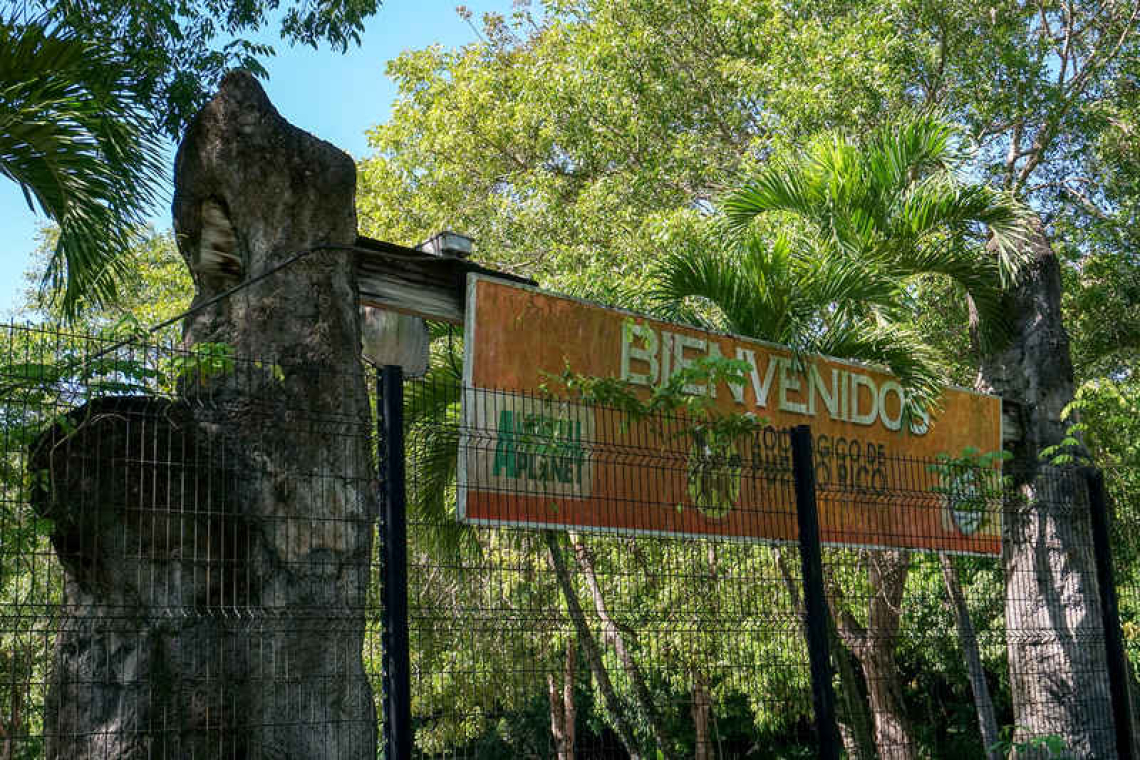The Zoológico Dr. Juan A. Rivero, closed to the public since 2017, is still home to hundreds of animals, including a lion whose roar can be heard from the entrance. The zoo, once known as one of the best in the Caribbean, used to draw scores of visitors annually. Photo credit Coraly Cruz Mejías, GPJ Puerto Rico.
SAN JUAN, Puerto Rico--Puerto Rico is closing the US territory’s only zoo following years of suspected negligence, a lack of resources and deaths of animals that were highlighted by activists.
The Dr. Juan A. Rivero Zoo in the western coastal town of Mayaguez has remained closed since Hurricanes Irma and Maria battered the island in September 2017, with activists questioning the state of the zoo’s more than 300 animals and their future.
Puerto Rico's government announced the permanent closure of the 45-acre zoo Monday as federal authorities investigate allegations of mistreatment of animals.
“Animal welfare comes first,” Governor Pedro Pierluisi told reporters. “Questions have been raised for a long time.”
In February, US Attorney Stephen Muldrow announced that experts from The Wild Animal Sanctuary in Colorado would inspect and evaluate the animals, saying that “the safe and humane care for all zoo animals is a top priority of the Justice Department.”
Sanctuary officials visited the zoo on Sunday – a visit that was supposed to have occurred in 2017 before the hurricanes hit, sanctuary executive director Pat Craig told The Associated Press, noting that people already were concerned about the animals at that point.
“The zoo definitely has been degraded,” he said. “You can imagine the facilities were overgrown and dilapidated to some degree.”
He said the animals were healthy enough to travel for the most part, although he noted that a mountain lion has a growth on one arm that veterinarians are still inspecting.
Craig also said he was concerned about the zoo’s lone chimpanzee because apes require socialisation.
He declined to provide further details, saying he was limited about what he could share, given the involvement of the US Justice Department. However, he added that the team didn't find anything that required immediate attention.
In February 2018, the US Department of Agriculture cancelled the zoo’s exhibitor’s licence after citing dozens of violations in previous years, including a thin tiger that was euthanised and a distressed cougar living in a cramped space.
Previously, a government-appointed committee had raised concerns about two pumas that died, an underweight chimpanzee and a rhinoceros named Felipe that was limping. It also noted that dozens of animals needed vaccines or physical tests, and that a kangaroo and a porcupine were among animals that didn’t have shelter.
In January, officials announced that an American black bear named Nina, who was more than 20 years old, died from unspecified health complications after she stopped eating. The results of a necropsy have not been released. Black bears can live up to 35 years in captivity.
Craig, with The Wildlife Sanctuary, said he estimates his group would transfer up to 50% of the zoo’s animals at no cost to Puerto Rico’s government. However, they would not take in primates or unique birds, given Colorado’s weather.
Puerto Rico’s Department of Natural Resources has said it is cooperating in plans for transfers and with the continuing investigation in the zoo, which opened in 1954.
“We have not skimped on the search for alternatives so that … the best possible care and safety of all the species that inhabit there are guaranteed,” said the department’s secretary, Anaís Rodríguez, who noted that it wasn’t until four years ago that the agency assumed responsibility for the zoo.
Activists celebrated the zoo’s impending closure, including Christian Ríos, who is also president of an animal rights commission at Puerto Rico’s Association of Attorneys. He called for full transparency as officials prepare for the transfer of certain animals.
“We are not letting our guard down,” Ríos said, adding that those responsible should face the consequences. “We are sorry that all these complaints have taken a long time to be heard.” Source: Associated Press. ~ ABC News ~







